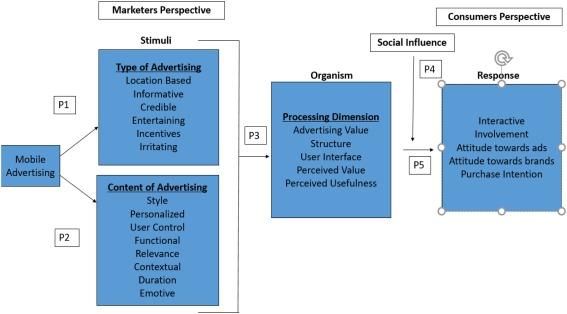Instructional Design Consultant: Key Skills, Roles, and How to Hire the Best Expert
Wiht the rapid evolution of education technology, the demand for talented Instructional Design Consultants at universities, colleges, and schools has never been higher. These professionals bridge the gap between cutting-edge digital tools and effective learning experiences, making them pivotal in 21st-century education. If you are a job seeker eyeing a lucrative role in EdTech or an institution looking to hire the right expert for your team, understanding the essential skills, responsibilities, and hiring strategies for instructional design consultants is key to succeeding in this competitive field.
What Dose an Instructional Design Consultant Do?
an Instructional Design Consultant collaborates with educators and administrators to create impactful, technology-enhanced learning materials and experiences. Their expertise lies in transforming complex subject matter into engaging and accessible online or blended courses. At a glance, these consultants are responsible for:
- Analyzing instructional challenges and learner needs
- Designing curriculum and lesson plans compatible with learning management systems (LMS)
- Integrating multimedia, assessments, and interactive modules into courses
- Advising faculty on best practices in online learning and e-learning pedagogy
- ensuring accessibility and inclusivity in course design
- Evaluating course effectiveness and revising content based on feedback
Key Skills Every Instructional Design Consultant Should Have
Whether you’re aiming to land your first EdTech job or are seeking the right candidate for your academic institution, certain skills distinguish top-tier Instructional Design Consultants:
1. Instructional Design Theory
- Deep understanding of instructional models such as ADDIE, SAM, and Bloom’s Taxonomy
- Experience with learner-centered and active learning strategies
2. Technological Proficiency
- Familiarity with LMS platforms (e.g., Moodle, canvas, Blackboard)
- Competence in multimedia tools (Articulate Storyline, Adobe Captivate, Camtasia)
- Basic knowledge of HTML, CSS, and digital accessibility standards
3. Project Management Skills
- Ability to manage multiple projects and meet tight deadlines
- Collaboration with cross-functional teams including subject matter experts, multimedia designers, and IT staff
4. Excellent Interaction and Interpersonal Skills
- Facilitation of workshops and training for educators
- Clear writing for instructional content
- Feedback collection and stakeholder management
5. Assessment and evaluation
- Design of formative and summative assessments
- Use of data analytics to refine course effectiveness
6. Creativity and Problem-Solving
- innovative approaches to engaging diverse learners
- Adaptability in response to technological and educational changes
The Role of instructional Design Consultants in Education Technology
Instructional Design Consultants are essential drivers of digital transformation in education. At universities, colleges, and schools, their core roles include:
- consulting on digital course delivery, ensuring alignment with institutional goals
- Advising on the implementation of new educational technology tools and platforms
- Leading professional development for faculty adapting to online teaching
- Maintaining high standards of accessibility and compliance (e.g., ADA, WCAG)
- Continually updating instructional materials to reflect current best practices
Benefits of hiring an Instructional Design Consultant
Investing in an experienced instructional Design Consultant offers significant benefits for educational institutions, including:
- Enhanced learning Outcomes: Courses designed with sound instructional principles lead to better student engagement and retention.
- faculty empowerment: Structured faculty training and support help educators transition smoothly to digital teaching environments.
- Cost and Time Efficiency: Well-structured courses reduce the need for frequent revisions and streamline the teaching process.
- Scalability: Consultants can design reusable learning objects and scalable modules for future courses.
- Compliance and Accessibility: Ensures all course materials meet regulatory standards for accessibility and inclusivity.
How to Hire the Best Instructional Design Consultant
Finding the right Instructional Design consultant for your university, school, or college can be a game-changer for your educational technology initiatives. Here are practical steps to guide your hiring process:
1. Define Your Needs Clearly
- Identify the specific challenges you aim to solve (e.g., online course expansion, blended learning integration, professional development).
- Decide whether you need a full-time employee, a short-term contractor, or an ongoing consultant.
2.Create a Compelling Job Description
- Include essential qualifications such as degrees in instructional design, education technology, or related fields.
- List required skills,desired experience,and familiarity with the specific tools or platforms your institution uses.
- Mention soft skills like adaptability, communication, and problem-solving capabilities.
3. Evaluate Portfolios and Work Samples
- Request examples of past projects, focusing on curriculum design, e-learning modules, and instructional materials.
- Look for evidence of innovative approaches and consistent engagement with end-users (faculty and students).
4. Assess Technical and Pedagogical Knowledge
- During interviews,discuss their familiarity with modern education technologies and instructional design best practices.
- consider practical assessments, such as reviewing a case scenario relevant to your institution’s needs.
5. check References and Testimonials
- Contact previous employers or clients to learn about the candidate’s reliability, collaboration skills, and impact.
6. emphasize Cultural Fit and Continuous Learning
- Ensure potential hires align with your institution’s mission and values.
- Prioritize candidates who show a commitment to professional growth and current trends in education technology.
Practical Tips for Aspiring Instructional Design Consultants
If you are seeking a role as an Instructional Design Consultant in universities, colleges, or schools, here are some actionable steps to increase your appeal:
- Pursue certifications in instructional design and popular e-learning tools.
- Develop a varied portfolio showcasing both online and blended learning solutions.
- Stay updated on the latest EdTech trends, accessibility standards, and digital pedagogies.
- Network through professional organizations and relevant conferences.
- Demonstrate your impact with concrete data or testimonials from previous projects.
Conclusion
For academic institutions, hiring a qualified Instructional Design consultant is an investment in superior learning experiences and future-ready education technology. For job seekers, mastering the blend of instructional design theory, digital tools, project management, and communication skills will open up abundant opportunities in this in-demand field. As education continues to embrace digital transformation, the strategic role of instructional design consultants will onyl grow stronger, making it a rewarding career path and a vital resource for universities, colleges, and schools aiming for excellence in teaching and learning.

